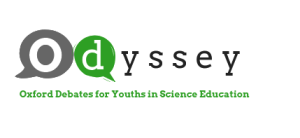European Projects
Energy Discovery Centre has participated in European projects since 2001. Here is an overview of ongoing and previous projects.
Please note: as Energy Discovery Centre is a brand name, the official beneficiary in EU projects is the Foundation Tallinna Tehnika- ja Teaduskeskus.
2019-2022: the SEAS project


SEAS (Science Education for Action and Engagement towards Sustainability) project is built around “open schooling”. This involves schools cooperating with other institutions and organizations to achieve community well being and changes the way science comes into the classroom and how the science-classroom makes a difference in the world.
The consortium is led by the University of Oslo and includes 11 partners from Sweden, Norway, Belgium, Austria, Italy, Estonia and UK. SEAS is funded by the European Union’s Horizon 2020 research and innovation programme under grant agreement No. 824522. Read more about SEAS project from webpage and quick facts from the brochure.
2018–2021: the ODYSSEY project

ODYSSEY (Oxford Debates for Youths in Science Education) seeks to inspire 13–18-year-olds to debate on science topics and issues while learning to base their arguments on scientific evidence. As well as aiming to raise the level of scientific literacy and science capital in schools, ODYSSEY also hopes encourage schools to use debate as a learning tool.
The consortium is led by the Institute of Geophysics, Polish Academy of Sciences, and includes the Center for the Promotion of Science in Serbia, the Hellenic Institute of Rhetorical and Communication Studies in Greece, and Energy Discovery Centre in Estonia. ODYSSEY is funded under the Erasmus+ programme. More about ODYSSEY
2014–2017: the PARRISE project
The aim of the PARRISE (Promoting Attainment of Responsible Research and Innovation in Science Education) project was to introduce the concept of Responsible Research and Innovation (RRI) in primary and secondary education. In the course of the project, Energy Discovery Centre organised and created materials for teacher training.
The consortium was led by the University of Utrecht, the Netherlands, and included 18 institutions from 11 countries. PARRISE was funded under the EU Research and Innovation 7th Framework Programme (2007–2013). More about PARRISE
2013–2015: The Open Learning project
During the course of the project “Teaching and learning in an open, informal learning environment”, a teachers’ training course was created at Tallinn University, Estonia.
The project was lead by Tallinn University, with the Univeristy of Helsinki, Finland, University of Latvia, The ZINOO Science Centre in Latvia, and Energy Discovery Centre. The project was funded by the Nordic Council of Ministers under Nordplus Higher Education. More about Open Learning
2011–2015: the BIOPROM project
The BIOPROM project combined different experiences and know-how in order to develop synergetic support measures with the main goal to promote Bioeconomy in different regions. In the course of the project Energy Discovery Centre created a travelling interactive informal exhibition on renewable energies with 4 other European science centres.
The consortium was led by RTD Services, Austria, and included eight partners (science centres, museums, academic partners, and other stakeholders) in five countries. BIOPROM was funded under the EU Research and Innovation 7th Framework Programme (2007–2013). More about BIOPROM
2010–2012: the Discover Natural Phenomena! project
The aim of the Discover Natural Phenomena! project was to examine and analyse the learning process and science uptake of schoolkids in interaction with the especially created science exhibition and accompanying science show.
The project was led by Energy Discovery Centre, and included the Riga Science Centre Tehnoannas Pagrabi, Latvia, and the University of Helsinki, Finland. The project was funded by the Nordic Council of Ministers under Nordplus Horizontal. More about Discover Natural Phenomena!
2008–2011: the SCICOM project
The SCICOM project (European Network of Science Centres in communicating energy-related topics) aimed to develop an operating network of science centres and experts in the field of renewable energy. In the course of the project a travelling exhibition was created, policy recommendations were made, and good practices were shared.
The consortium was led by RTD Services, Austria, and included 10 partners in six countries. SCICOM was funded under the EU Research and Innovation 7th Framework Programme (2007–2013). More about SCICOM